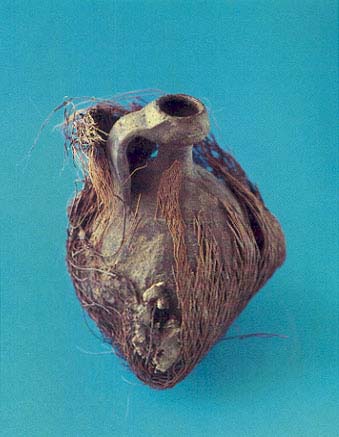Image Details

Gabi Laron
Oil to anoint kings? This modest clay vessel, wrapped in palm fibers, was discovered in a cave in the famous Qumran area at the northwestern end of the Dead Sea, where the Dead Sea Scrolls were found. Dated to the first century C.E., this 5-inch-diameter flask—amazingly—contained oil, still fluid, though no longer fragrant. Chemical tests determined that the oil was of vegetable origin, but unlike any oil known today.
In antiquity, two orchards of rare balsam trees were located in the area near the Dead Sea—one in Jericho and the other in Ein Gedi. Fragrant oil made from this now-extinct tree was used, tradition holds, to anoint some of the kings of Israel.
The flask had been buried—apparently by design—in a pit about 3 feet deep. Because the flask contained an unidentifiable oil and was found in the region where balsam was once cultivated, and because it had been carefully hidden—an indication that its contents were of special value—author Patrich suggests that the oil in this flask may be balsam, the same type of oil as that used to anoint the ancient kings of Israel.
